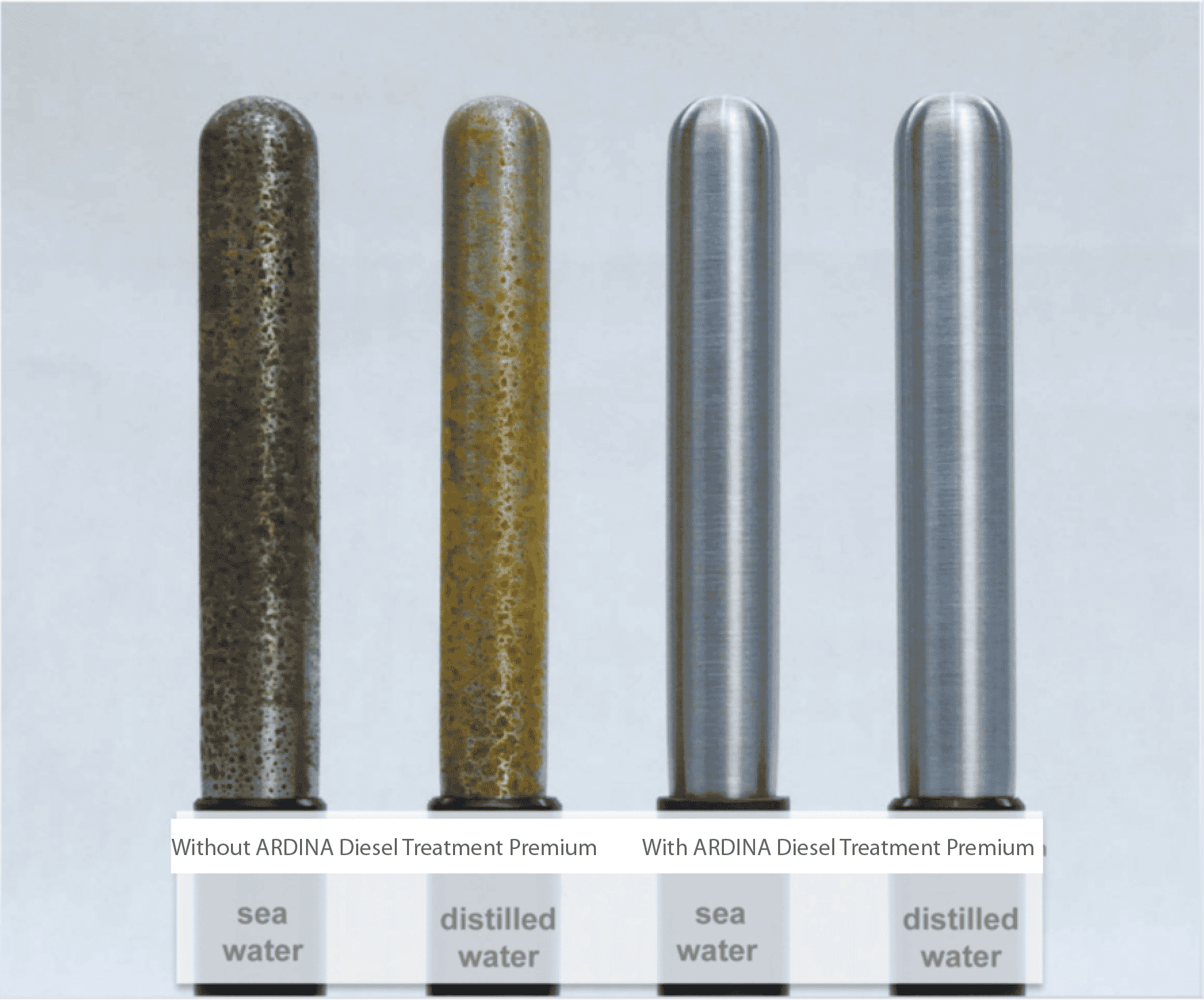Additive performance
Test setup
ARDINA’s Diesel additive is unrivalled when it comes to keeping injectors clean and shows unparalleled capability when it comes to completely removing injector deposits and restoring lost engine power.
Today’s high-tech diesel engines with their high pressures and low tolerances are more susceptible to engine and injector deposits. Fouled injectors lead to reduced flow through injectors and incorrect spraying patterns, resulting in reduced engine power, higher fuel consumption, loss of vehicle drivability and an increase of regulated (harmful) exhaust emission. When choosing an ARDINA Diesel additive you rely on an unrivalled industry leading additive package. The extraordinary clean-up and keep-clean capability from the new diesel additive package are demonstrated in the official industry’s standard XUD-9 (indirect injection) and CEC DW10 (direct injection common rail) engine tests with both normal and biodiesel fuels.
Clean-up performance
In the DW10 test the engine runs on a reference fuel for over 30 hours (in 30 cycles of one hour). At the end of each cycle the engine power is measured. After the initial cycles on a reference fuel the engine starts to run on fuel with ARDINA’s Diesel Treatment additives. Again the engine runs in cycles of one hour after which the engine power is measured. Additionally, at the start of the test, the end of the initial reference fuel cycles and at the end of the full test, the injectors are analyzed by Scanning Electron Microscopy (SEM) of the internal flow channels. Each flow channel is about 110 microns, roughly the equivalent to the width of a single human hair.
Description
The test results are spectacular! As it is clear from the plot complete power restoration and hence complete clean-up is achieved with fuel treated with TecLub Premium Diesel Treatment. The SEM pictures show a dramatic clean up to an all new level. Zero deposits remain.
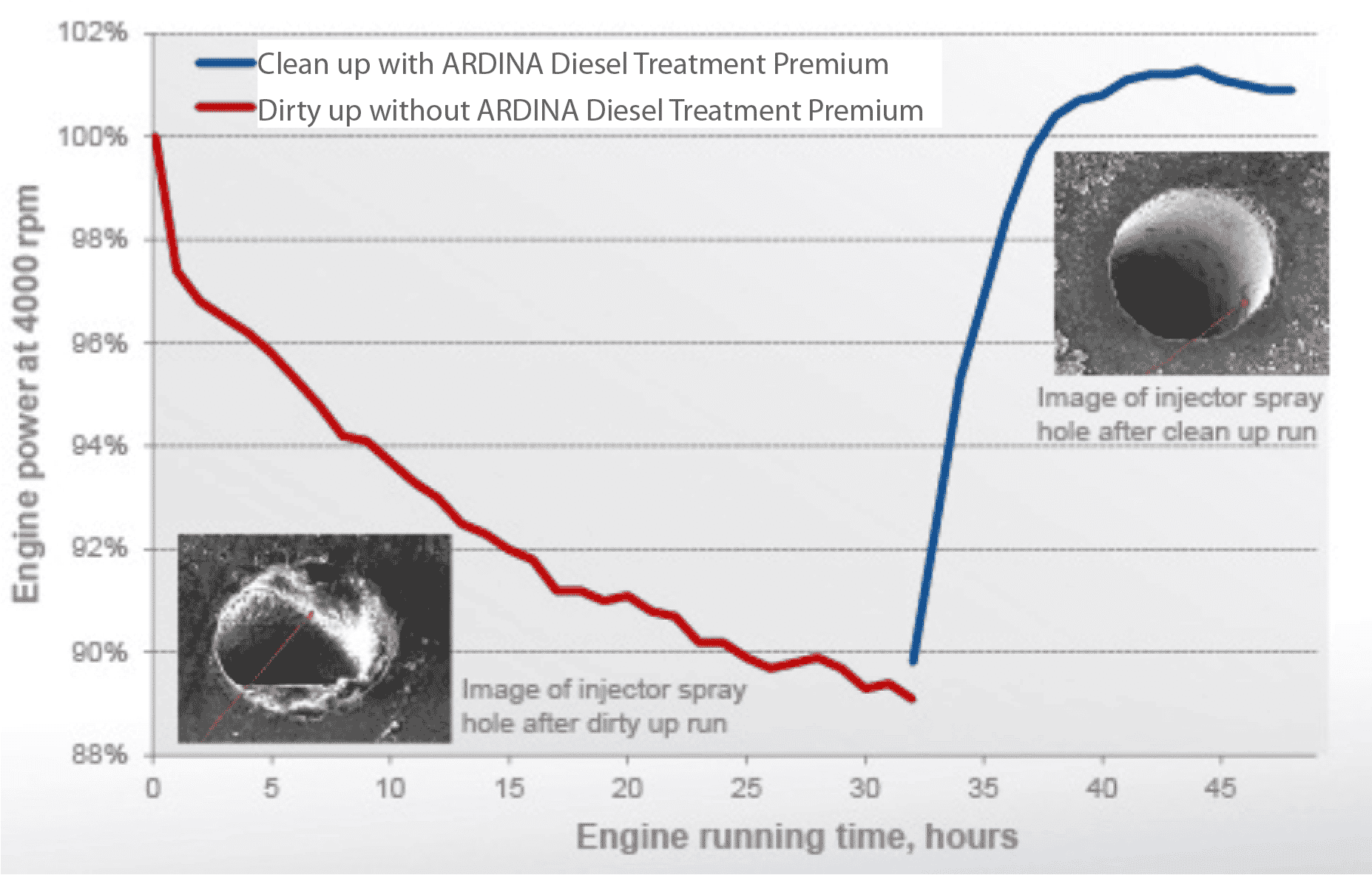
Fuel economy & engine power | Field tested
ARDINA Diesel additives demonstrate excellent deposit removal capabilities in the latest technology injector types. The performance is validated by using SEM images of injector holes and measuring power in a controlled industry standard test confirming the extraordinary clean up and keep clean characteristics of ARDINA’s additives. Next to laboratory tests, road tests were conducted with light and heavy duty vehicles. These tests show “real life” removal of fuel injectors deposits resulting in significant fuel economy and power improvements.
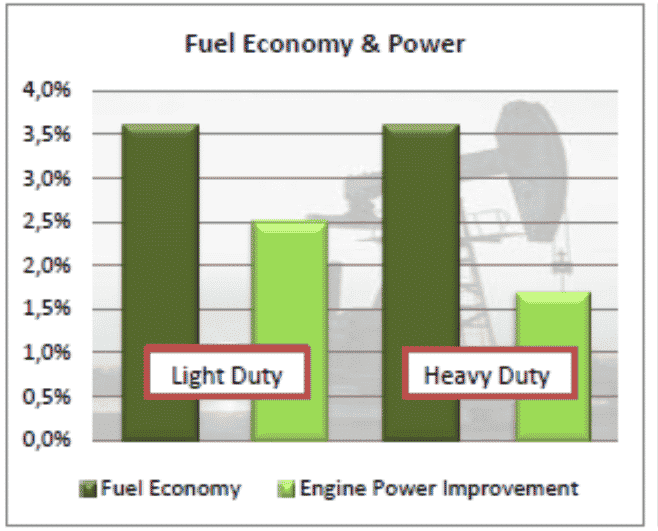
Keep clean performance
Apart from the Clean-Up performance, ARDINA Diesel additive completely blocks the formation of deposits within the injector holes or channels preventing power loss in all engine platforms, including the latest technology diesel fuel injectors. ARDINA Diesel additive provides a high level of `Keep Clean Performance’.
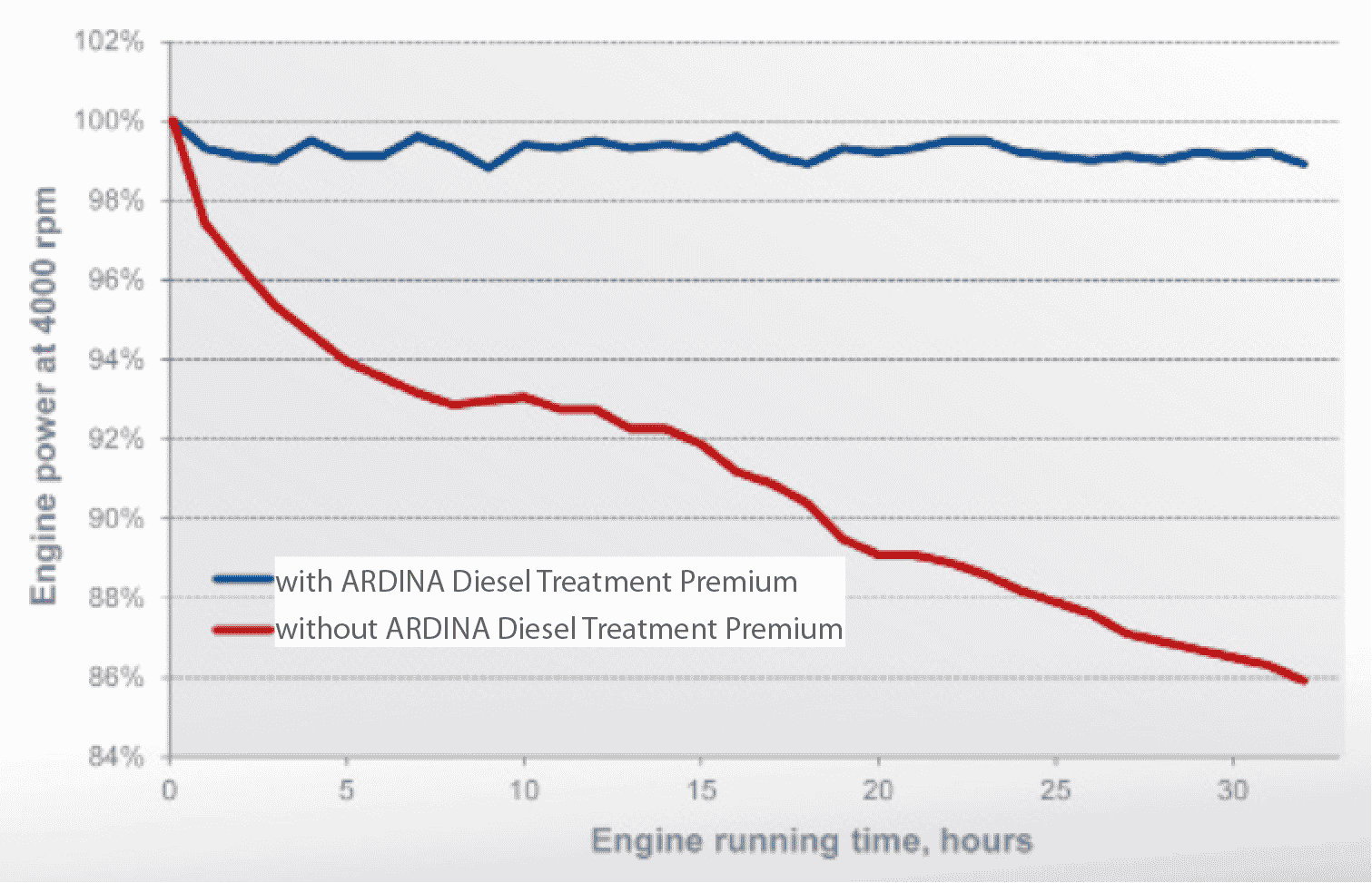
Biodiesel deposits clean-up
Since concerns towards biodiesel and the formation of deposits are rising, ARDINA has also tested its Diesel additive in the DW10 engine test running B10 biodiesel. Most diesel vehicles are now equipped with a common rail, direct injection fuel system. However, these high-tech common rail fuel injection systems, with their high pressures and very tight tolerances, are significantly more susceptible to deposit formation.
Combined with changing fuel quality and increasing use of biofuel – in itself leading to an increase in fuel injector deposits – it is of high importance to keep the engine clean of deposits to prevent engine problems and maintain performance and fuel economy. Indeed the results of our test show that deposits are formed quicker when running on B10 fuel and especially when Zn is added. This confirms the many “unofficial” reports of injector needle sticking in France, linked to its higher biodiesel content. Key conclusion however is that test results also show excellent clean up performance in B10 fuels, restoring the original injector flow and engine performance.
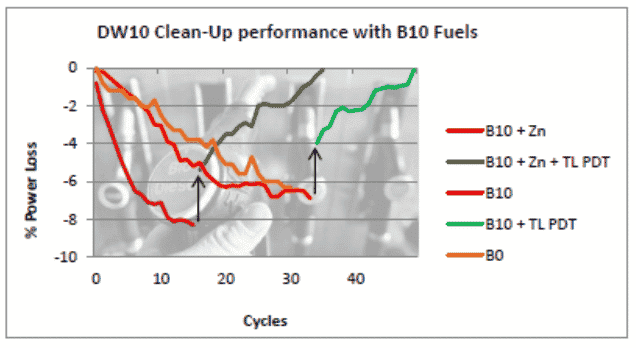
No harm test results
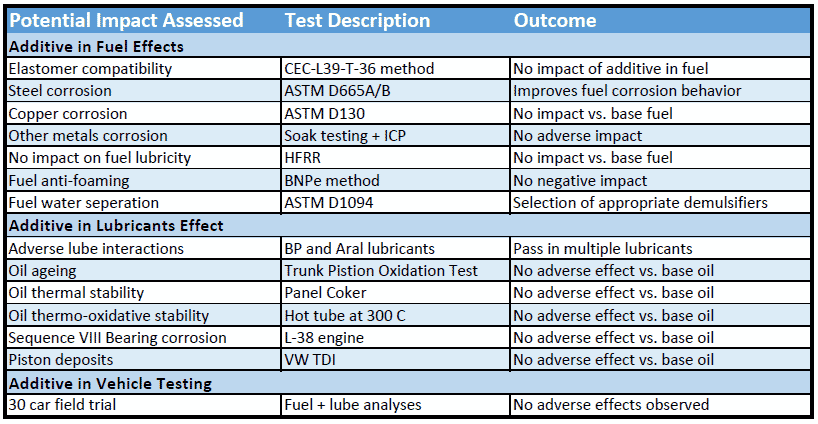
Corrosion protection
ARDINA Diesel additive contains a strong corrosion inhibitor which protects the fuel system against corrosion. The images below give you an indication of the effects of treated or nontreated metal parts.
